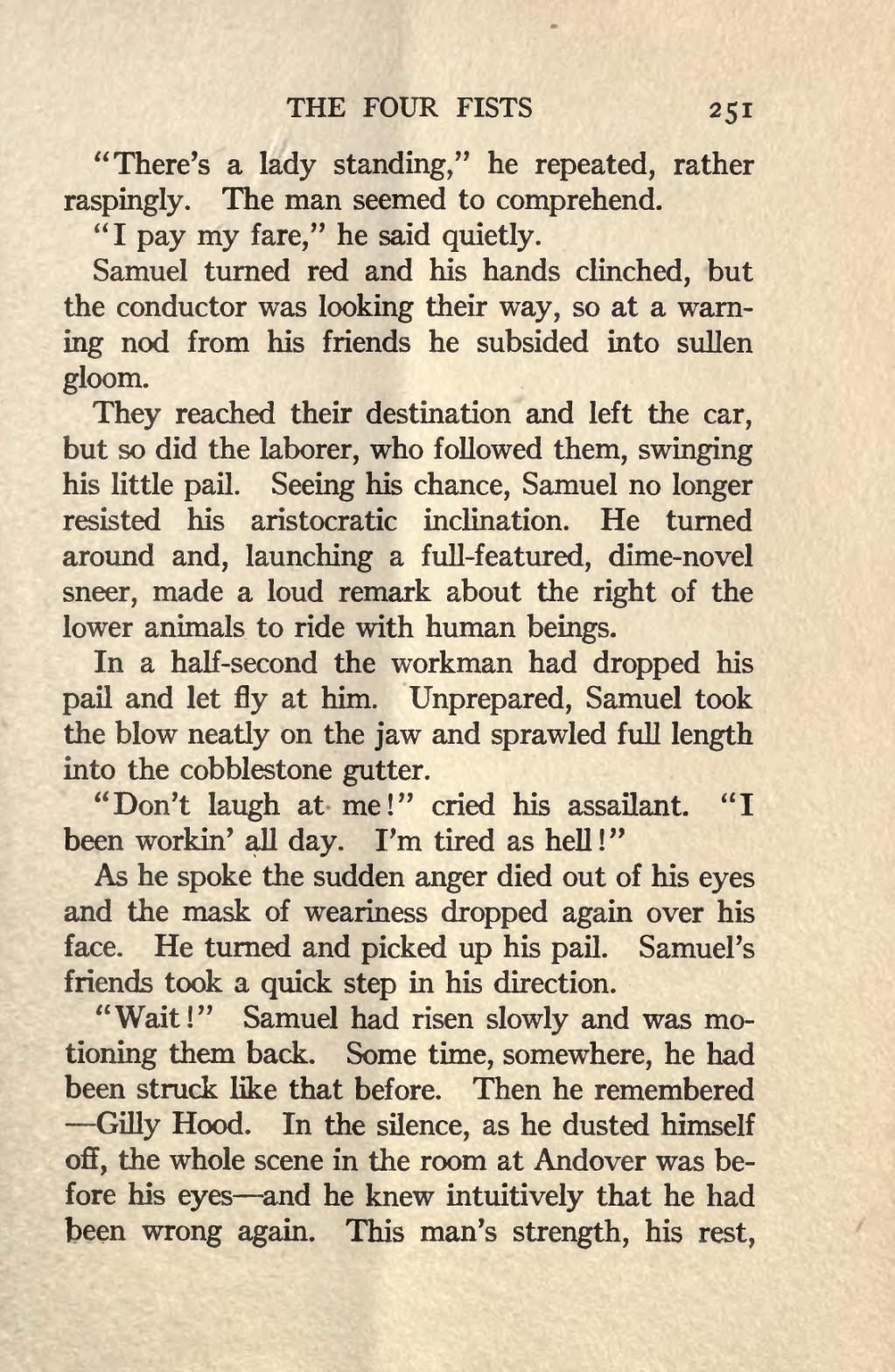"There's a lady standing," he repeated, rather raspingly. The man seemed to comprehend.
"I pay my fare," he said quietly.
Samuel turned red and his hands clinched, but the conductor was looking their way, so at a warning nod from his friends he subsided into sullen gloom.
They reached their destination and left the car, but so did the laborer, who followed them, swinging his little pail. Seeing his chance, Samuel no longer resisted his aristocratic inclination. He turned around and, launching a full-featured, dime-novel sneer, made a loud remark about the right of the lower animals to ride with human beings.
In a half-second the workman had dropped his pail and let fly at him. Unprepared, Samuel took the blow neatly on the jaw and sprawled full length into the cobblestone gutter.
"Don't laugh at me!" cried his assailant. "I been workin' all day. I'm tired as hell!"
As he spoke the sudden anger died out of his eyes and the mask of weariness dropped again over his face. He turned and picked up his pail. Samuel's friends took a quick step in his direction.
"Wait!" Samuel had risen slowly and was motioning back. Some time, somewhere, he had been struck like that before. Then he remembered—Gilly Hood. In the silence, as he dusted himself off, the whole scene in the room at Andover was before his eyes—and he knew intuitively that he had been wrong again. This man's strength, his rest,
